![]()
Sun, May 29, 2011 | The Meir Amit Intelligence and Terrorism Information Center
Iran’s Media Steps Up Criticism of Azerbaijan
In recent weeks Iranian media have taken an increasingly critical stance towards Azerbaijan. Most of the criticism against Iran’s northern neighbor has to do with three major issues: the deepening Israeli involvement in Azerbaijan, the anti-religious policy of Azerbaijani authorities, and their hostility towards Iranian tourists.
In recent weeks there has been a growing number of reports in Iranian media about the spread of “Zionist influence” in Azerbaijan. For example, last week the Tabnak website reported a “secret project” by Israel to increase its influence in the republic with the approval of Azerbaijan’s President Ilham Aliyev. According to the report, the “Zionist lobby” is working to bolster Jewish presence in large parts of Baku where significant Islamic religious activity takes place. As part of this so-called policy, thousands of housing units have allegedly been given to Jews who will immigrate to Baku from Israel and other countries. In addition, Tabnak reported increased military, security, and media cooperation between Israel and Azerbaijan (Tabnak, May 19).
Last month Iranian media made special mention of recently-leaked Wikileaks reports saying that Israel uses Azerbaijan as a base for anti-Iranian espionage. According to the documents, Israel and Azerbaijan signed agreements to broaden their security-related cooperation, under which Israel will provide Azerbaijan with advanced weapons and use Azerbaijan as a base for gathering intelligence on Iran (Farda, April 13).
Fars News Agency accused Azerbaijan of being a major strategic base for the U.S. and Israel and a pawn for their regional policy. The agency even claimed that the Azerbaijani authorities had told the U.S. they were willing to receive activists belonging to the Iranian opposition organization Mojahedin-e Khalq after the latter were expelled from Iraq (Fars, May 11).
The policy of the Azerbaijani authorities towards the Islamic opposition in the republic and their efforts to restrict religious activity in the country also came under strong criticism from the Iranian media.
The Iranian media widely reported the measures taken by the authorities in Baku to stifle the Islamic opposition in the country and impose restrictions on religious Islamic activity. According to one report, the Azerbaijani authorities decided to prohibit female students from wearing veils to school and close down a mosque in Baku, the capital of Azerbaijan. In early May it was reported in Iran that dozens of Azerbaijanis were arrested after demonstrating against the authorities’ plan to close down the Fatemeh Zahra mosque in Baku. The Farda website compared the policy of the Azerbaijani authorities to the anti-religious policy of Mustafa Kemal Ataturk, the founder of the modern Turkish republic, and Reza Shah, the founder of the Pahlavi dynasty in Iran (Farda, May 9).
The Iranian authorities also strongly criticized the hostile approach allegedly taken by the Azerbaijani authorities towards Iranian tourists. In late March it was reported in Iran that Iranian tourists were treated with contempt and derision by Azerbaijani customs inspectors at the border crossings between the two countries (Asr-e Iran, March 27).
For the past several years the Iran-Azerbaijan relations have been affected by severe tensions, even though Azerbaijan is the only former Soviet Muslim republic with a Shi’ite majority. Following Azerbaijan’s independence in 1991, the rise of Azeri national consciousness in light of the existence of a sizeable Azeri minority in Iran intensified the latter’s concerns over Azeri separatism and had a negative impact on the relations between the two countries. Iran’s attempts to increase its influence among the Shi’ite population of Azerbaijan further exacerbated the tensions between them. During the Nagorno-Karabakh conflict, which broke out between Azerbaijan and Armenia in 1988, Iran even served as a major supply route for Armenia, thus helping the Armenian war effort.
The differences of opinion between Iran, Azerbaijan, and other Caspian Sea countries (Russia, Kazakhstan, and Turkmenistan) over the division of the sea also had its part in the escalation of tensions between the two countries.
Recent years have seen a rapprochement between Iran and Azerbaijan, and the authorities in Baku even announced that they would not let the U.S. establish military bases there or help the Americans use Azerbaijani territory for an attack on Iran. Tehran and Baku also signed a number of cooperation agreements. However, their relations are still uneasy, and tensions boil to the surface every once in a while. On several occasions Iranian media even threatened that unless Azerbaijan ceased its efforts to stir Azeri separatism in Iran and changed its hostile attitude towards Tehran, Iran may demand the return of the Caucasus territories handed over to Russia under the agreements it had signed with Russia in the 19th century.
In February [28, 2011], the People’s Mojahedin Organization of Iran[1] published an article on the differences of opinion between Iran and Azerbaijan which is worth reading:
Mon, Feb 28, 2011 | www.english.mojahedin.org
Azerbaijan fears neighbour Iran’s radical influence
The Iranian potatoes, oranges and raisins on sale in the bazaars of Astara are not the only signs of the Islamic republic’s influence in this Azerbaijani border town.
There is also the Iranian television station which beams the news according to Tehran into Astara’s homes and tea-houses in the Azerbaijani language.
Hundreds of Iranian trucks rumble north each day along the nearby highway, loaded with goods bound for Azerbaijani markets, but despite the trading links between the mainly Shiite Muslim neighbours, their political relationship has become increasingly strained — particularly over the issue of Islam.Azerbaijan is an ex-Soviet state with a determinedly secular government, and there have been small but widely-publicised protests outside the Iranian embassy in Baku in recent weeks, accusing Tehran of supporting Islamic extremists in an attempt to destabilise the country.
There is a huge ethnic Azerbaijani minority in Iran itself — up to a quarter of the Islamic republic’s 74 million population, according to some estimates, and way outnumbering Azerbaijan’s own population of eight million.
Relaxing in a tea-house in Astara, local trader Elchin Ibrahimli said that Tehran was using the Azerbaijani-language broadcasts on its Sahar television channel as a propaganda weapon.
’This channel likes to exaggerate everything,’ he said. ’For example, if something minor has happened in Azerbaijan, the channel’s journalists are portraying it as a disaster or a global-scale problem.’
Another local trader, Agasan Hashimli, said that the channel ’skillfully exploits problems that exist in Azerbaijan’ such as a recent controversy about the banning of Islamic headscarves in schools.
The hijab row sparked demonstrations by pious Muslims, causing officials to accuse Iran of helping to stir up discontent.
The Sahar channel also regularly relays criticism of Azerbaijan for its friendly links with Tehran’s foes, the United States and Israel.
’In general, Western rapprochement with Azerbaijan — in any form — is perceived by Iran as a threat,’ said Zahid Oruj, a lawmaker from the pro-government Ana Vatan (Motherland) party.
’Iran supports Islamic extremism in Azerbaijan because if religion takes on a leading role in the state, they will have more levers to influence Azerbaijani policy,’ he said.
Reports on Azerbaijani television over the past month have also accused Iran of meddling in the country’s internal affairs by backing religious radicals.
Another source of anger is Tehran’s growing economic relationship with Azerbaijan’s bitter enemy, Armenia, amid the increasingly heated dispute between Baku and Yerevan over the territory of Nagorny Karabakh, where the ex-Soviet neighbours fought a war in the 1990s.’Iran calls on Azerbaijan to become an enemy of Israel because they believe that religion requires it, but at the same time Iran is actively co-operating with a country that has occupied part of Azerbaijan, a Muslim country,’ said analyst Sadreddin Soltan.
Karabakh has been controlled by ethnic Armenian separatists backed by Yerevan since the war.
’Where, then, is the Muslim solidarity?’ he asked.
In January, energy-rich Baku agreed a five-year deal to supply large amounts of gas to Tehran, which despite its own massive reserves has to import gas because of lack of foreign investment, energy inefficiency and huge domestic demand.
But analyst Soltan said that Baku is also ’under pressure from the international community to join in with sanctions against Iran’ over Tehran’s nuclear programme — another potential source of future tensions.
The town of Astara is itself a symbol of the complex relationship between Azerbaijan and Iran: it was divided when the border was defined by a treaty in the 19th century, leaving most families in the area with relatives on the opposite side of the present-day border.
At the busy customs post, crowds of people wait to cross over into Iran to buy and sell goods or visit family members.
At the bazaar itself, wholesaler Faig Jafarzade said that the Iranian people had the right to choose a strict Islamic regime if they genuinely wanted one.
’It’s their own internal affair,’ he said. ’If this system can feed their people, then it’s the best one for them.’He said that the Iranian Sahar TV channel was only watched because local stations did not allow internal criticism of the Azerbaijani authorities.
Tehran, which is fighting sometimes violent rebellions by Kurds in its northwest and Baluch in the southwest, would be nervous at the prospect of Iranian Azeris demanding wider cultural autonomy.
Yet the same time, Iranians of Azeri origin hold top positions in the Iranian government and in the Azeri-populated regions in the north of Iran are among the richest in the country.
The Azeri population in Iran control much of the crucial bazaar trade and are tightly integrated into the population in big cities such as Tehran.
Note:
[1] PMOI is the main organization in the National Council of Resistance of Iran (NCRI), an “umbrella coalition” calling itself the “parliament-in-exile dedicated to a democratic, secular and coalition government in Iran.



 RSS
RSS

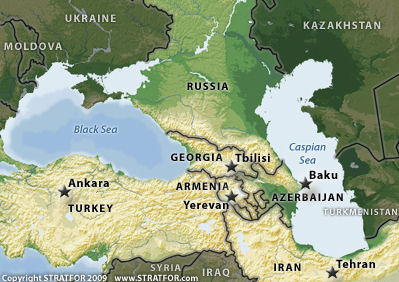
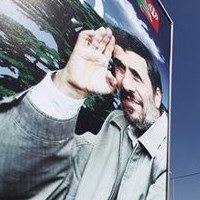
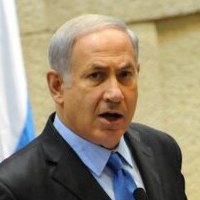
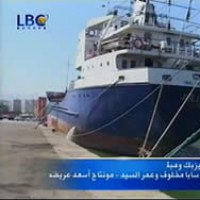
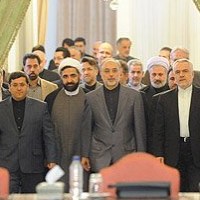








Latest Comments
Hello Mike, Thank you for your positive feedback to the article. I felt there wasn’t too much critical analysis of ...
Thanks for this considered and well constructed article. A follow up article on the manner in which the editorial contro...
THE CLUELESSNESS OF CLAIMING THAT OBAMA'S MIDDLE EAST POLICIES WERE A FAILURE CANNOT BE FURTHER FROM THE TRUTH, WHAT THE...
As long as Obama is the president of the usa do not trust the us government......
Thank you for an good read....